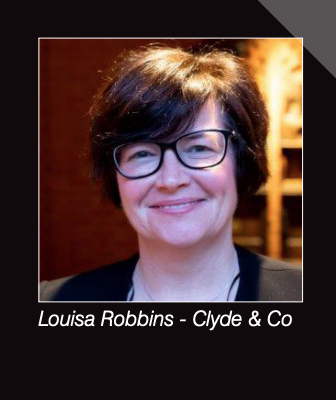It was not surprising, especially in a lukewarm property market, that disgruntled borrowers – or guarantors facing claims to meet shortfalls – brought proceedings or made counter-claims to avoid or escape liability, Louisa said.
Often the receivers were joined into the proceedings, and if they had relied on third-party professional advice, they would also become embroiled.
"Typically, I’m defending a professional being sued by their client. I look to manage expectations, and also manage their way out of claims. To date, our firm has never paid out on a receiver claim," she said.
The first duty of a receiver was indisputably to the mortgagee, because of the obligation to realise the security for the purposes of recovering the secured debt.
It should be straightforward, but had taken a decade of case law to reach the current position, with a wide margin of professional judgement offered along the way.
Often the receivers were joined into the proceedings, and if they had relied on third-party professional advice, they would also become embroiled.
"Typically, I’m defending a professional being sued by their client. I look to manage expectations, and also manage their way out of claims. To date, our firm has never paid out on a receiver claim," she said.
The first duty of a receiver was indisputably to the mortgagee, because of the obligation to realise the security for the purposes of recovering the secured debt.
It should be straightforward, but had taken a decade of case law to reach the current position, with a wide margin of professional judgement offered along the way.
Louisa said three aspects of a receiver’s work were crucial:
- Taking reasonable care to get the best price obtainable at the date of sale
- Exercising powers in good faith and always acting for a proper purpose
- Protecting the mortgagor’s interests, if consistent with a duty to the mortgagee
"The catalyst for many claims are third-party valuation reports, usually credible, and from extremely credible firms, but they usually do not represent the condition of the property at the time the receiver was acting," said Louisa.
Although there was an early focus on identifying potential sources of money to recover (or reduce) the shortfall, very rarely were the sources of funding for bringing a claim identified at that stage.
Although there was an early focus on identifying potential sources of money to recover (or reduce) the shortfall, very rarely were the sources of funding for bringing a claim identified at that stage.
Security of cost
Sometimes, an insurance-backed "no win – no fee' approach had been taken, but sometimes guarantors lived outside the EU, so issues around security of cost must be highlighted by the defence’s legal team.It was equally crucial to consider if a proposed sale might be to connected parties or companies, and if they were in a commercial relationship at the point of sale.
During the pre-action phase, both parties must disclose documents, e-mail exchanges and other relevant information, which could lead to a conspiracy theory being advanced.
"The courts don’t usually entertain this, but it is a reminder that receivers should keep the clearest and fullest of records and maintain the formality of such exchanges. Unfortunately, surveyors and valuers are some of the worst at record keeping, but there is no substitute for being able to present contemporaneous files,” said Louisa. “I recently received a file entirely in electronic form, one of the best I’ve ever seen. Every step was documented, so the receiver’s methodology and thought processes were evident. It’s easy to be wise after an event, but unless actions were wholly unreasonable, it’s rare a court would interfere with such decisions."
Retrospective valuation 'evidence' prepared via desktop research, using assumptions not based on first-hand knowledge, was a regular feature of claims against receivers, she added.
Witnesses of fact
Fortunately though, courts almost always paid significant regard to the experience of receivers asked to appear as witnesses of fact, and often above the views of appointed experts.They would also give weight to a receiver who could demonstrate that they had taken advice, either internal or external, and had not simply relied on their own judgement. Such proof did not always have to be comprehensive, it might simply be a transcript of a phone call, but could add huge value to a case.
Louisa stressed that the burden of proof always lay with the mortgagor, even when a company had been previously dissolved, but had been re-established in order to pursue a claim.
Clyde & Co recently handled a case from a decade earlier, placing a particular premium on the quality and extent of that client’s record-keeping and their recall.
Often, matters can be resolved without litigation, but if a case does proceed, a witness statement from a receiver can, like formal contemporaneous records, prove crucial in explaining the rationale for decisions.
If a court could hear the justification for such actions taken such as, for example, carrying out repair or improvement works, making a property safe, obtaining planning permission and other matters, it would add greatly to the chances of a case’s success.
Louisa added that despite the confidence there may be in the success of a full defence to a claim, each case had its own weaknesses. Rarely would a receiver or any professional choose to find themselves giving evidence in the witness box.
If a court could hear the justification for such actions taken such as, for example, carrying out repair or improvement works, making a property safe, obtaining planning permission and other matters, it would add greatly to the chances of a case’s success.
Louisa added that despite the confidence there may be in the success of a full defence to a claim, each case had its own weaknesses. Rarely would a receiver or any professional choose to find themselves giving evidence in the witness box.

